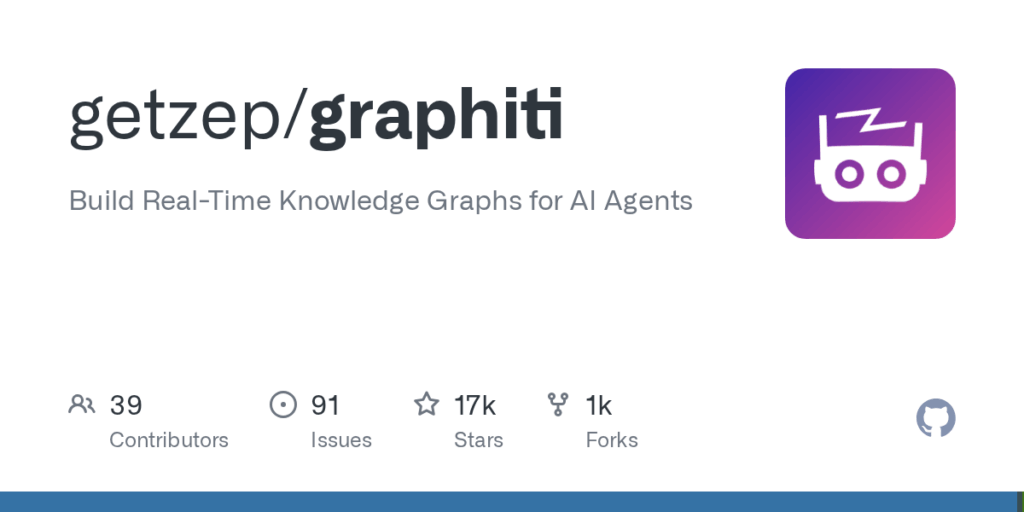graphiti
Basic Information
Graphiti is an open-source developer framework for building temporally-aware knowledge graphs tailored to AI agents and dynamic applications. It continuously ingests user interactions, structured and unstructured enterprise data, and external information into a queryable graph so agents can perform stateful reasoning, memory, and context-aware retrieval. The project powers Zep's context engineering platform and provides examples and tools for initializing indices, adding episodes, and executing hybrid searches. It targets developers who need real-time updates and precise point-in-time queries rather than batch RAG workflows. The repository includes core libraries, an MCP server for Model Context Protocol integrations, a FastAPI REST service, example quickstarts, and documentation for configuring database backends and multiple LLM/embedder providers. Installation is via pip and supports Neo4j or FalkorDB backends.








